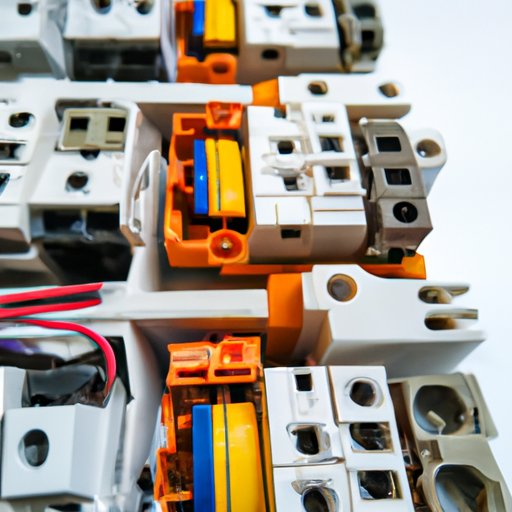Introduction
Circuit breakers are an essential part of any electrical system. They help prevent overloads and other dangerous situations by automatically cutting off the power when there is too much current flowing through the wires. But sometimes, circuit breakers trip for no apparent reason. In this article, we’ll explore why circuit breakers trip and what you can do to prevent it.
Common Causes of Circuit Breaker Tripping
There are several potential causes of circuit breaker tripping. The most common are:
Overloading of Electrical Circuits
If the amount of electricity running through a circuit is too great, it can cause the circuit breaker to trip. This is often caused by plugging in too many appliances on the same circuit or using high-powered appliances such as hair dryers or space heaters.
Faulty Wiring or Appliances
Faulty wiring or appliances can also cause circuit breakers to trip. If the wiring is old or damaged, it can draw too much current and cause the breaker to trip. Likewise, if an appliance is faulty or has a short circuit, it can draw too much current and cause the breaker to trip.
Ground Faults
Ground faults occur when there is an imbalance between the hot and neutral wires in an electrical circuit. This imbalance can cause too much current to flow through the circuit, which will trip the circuit breaker.
Short Circuit
A short circuit occurs when a hot wire comes into contact with a neutral or ground wire. This creates an unintended path for electricity to flow, which can cause too much current to flow through the circuit and trip the breaker.

Troubleshooting Tips for When Your Circuit Breakers Trip
When your circuit breakers trip, there are a few steps you can take to troubleshoot the issue. First, check the circuit breaker panel for tripped breakers. Then, identify the circuit or appliance that caused the trip. Ensure that all appliances are properly connected, and reset the circuit breaker. If the problem persists, consult a qualified electrician.

A Guide to Preventing Circuit Breaker Tripping
To avoid having your circuit breakers trip, there are a few precautions you can take. First, don’t overload your circuits. Try to spread out the load of your electronics and appliances across multiple circuits. Second, use surge protectors for sensitive electronics. Surge protectors will help protect your electronics from power surges that can trip the breaker. Third, avoid running long extension cords. Extension cords can draw too much current and cause the breaker to trip. Finally, have your electrical system inspected regularly by a qualified electrician. An electrician can identify any potential problems before they become an issue.

Exploring the Reasons Behind Circuit Breaker Tripping
In order to understand why circuit breakers trip, it’s important to know the different types of circuit breakers and their functions. The two main types are thermal-magnetic circuit breakers and ground fault circuit interrupters (GFCIs). Thermal-magnetic circuit breakers are designed to detect excessive current and open the circuit when the current flow is too high. GFCIs are designed to detect ground faults and open the circuit when an imbalance is detected. Understanding the importance of proper wiring is also key to preventing circuit breaker tripping. Faulty or old wiring can create an imbalance that leads to tripping. Finally, the risks of using old or faulty equipment should not be overlooked. Old or faulty appliances can draw too much current and cause a trip.
How to Diagnose and Fix Circuit Breaker Trips
If your circuit breakers are tripping, the first step is to consult a qualified electrician. An electrician can inspect your electrical system and determine the cause of the trip. Once the cause is identified, the electrician can recommend a course of action. This may include checking the circuit breaker panel for tripped breakers, replacing any faulty wiring, replacing any faulty appliances, and resetting the circuit breaker.
Conclusion
Circuit breakers are an important safety feature in any home or commercial building. Knowing why circuit breakers trip and how to prevent it can help keep your family and property safe. Overloading of electrical circuits, faulty wiring or appliances, ground faults, and short circuits are all common causes of circuit breaker trips. To prevent trips, avoid overloading your circuits, use surge protectors for sensitive electronics, avoid running long extension cords, and have your electrical system inspected regularly by a qualified electrician. When in doubt, always consult a qualified electrician.
(Note: Is this article not meeting your expectations? Do you have knowledge or insights to share? Unlock new opportunities and expand your reach by joining our authors team. Click Registration to join us and share your expertise with our readers.)
